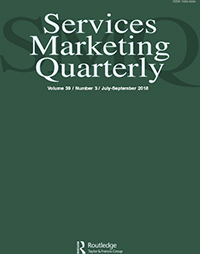Gender Differences in Online Customer Satisfaction: The Asymmetric and Nonlinear Effect
Services Marketing Quarterly. 2018, Vol. 39, Iss. 3, p. 157–174. ISSN 1533-2969. DOI: 10.1080/15332969.2018.1471954.
Publication year: 2018
The article aims to determine the extent of gender-related differences in user satisfaction with websites with a focus on the asymmetric and nonlinear effects of customer satisfaction. An experiment was conducted with 15 men and 15 women who undertook a typical task (scenario) on 44 websites. Overall, 1,320 evaluations of website quality attributes were obtained and analyzed. The results reveal that men and women differ in their website quality assessment. Marketing professionals should consider their target audience’s gender when designing a quality website, or even devise ways of approaching both gender groups through distinct means.

